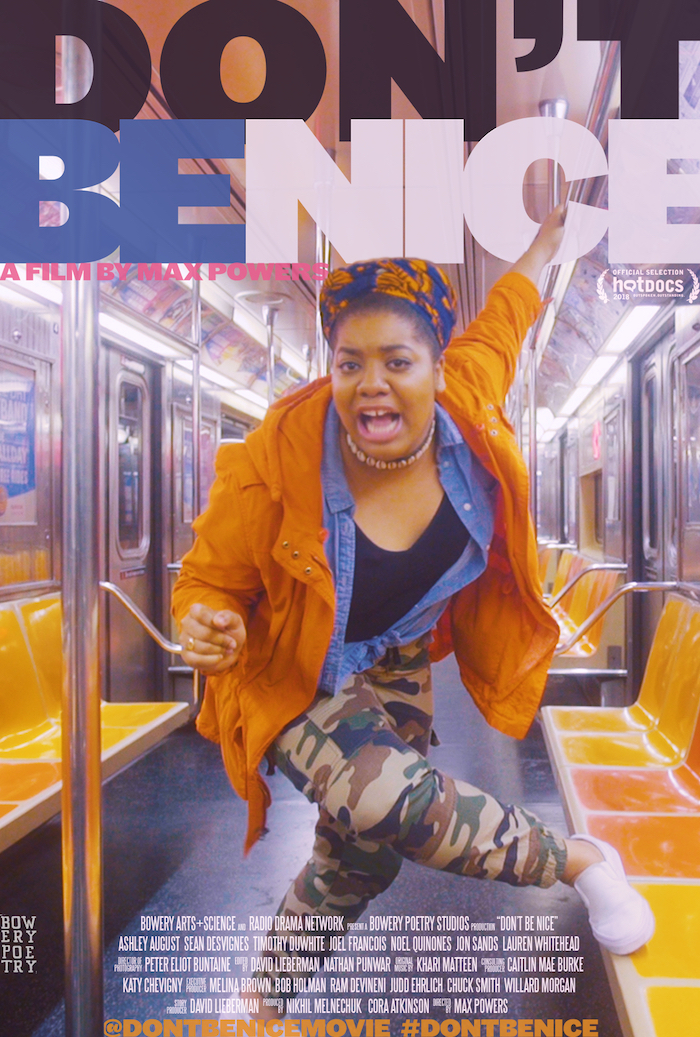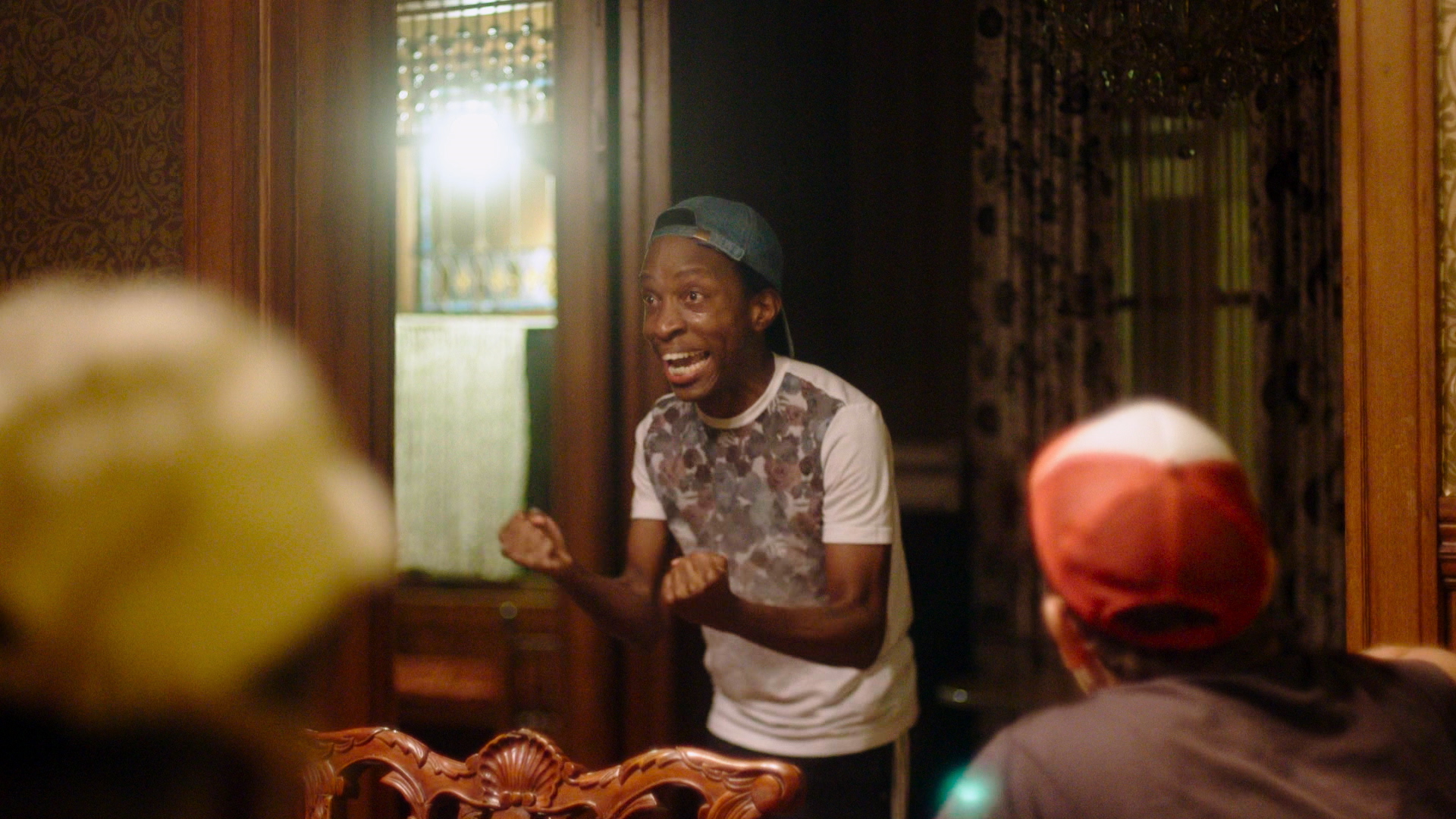You need the perfect beat, the right cadence, the tone. But can you show your essence through words? Can you distill meaning from them, bend them, break them apart—give them a new face, a new sound, new life?
Directed by Max Powers, the documentary Don’t Be Nice follows Ashley, Timothy, Joel, Noel, and Sean (MEGA), who are a mix of young Black, Afro-Latino, and queer poets preparing for the 2016 National Slam Poetry competition in Atlanta. Belonging to New York’s famous Bowery Slam team and coached by fierce and non-complacent coach Lauren A. Whitehead (who values emotion over performance), the five discover that art is elevated only when brave people decide to explore their darkest, most intimate thoughts and, through them, achieve freedom of the soul.
Themes of the poems featured in this documentary range from police brutality, the death of unarmed black men, and the significance of the Black Lives Matter movement to the issue of consent in sexual encounters and the shame and fear involved, and the conflicting sides of identifying as “Afro-Latino.”
In a series of close-ups shot in verité style, we see these young writers go through a hellish creative process, abandoning their reservations and seeking the power to speak through poetry. There’s anger in all of their verses, an anger that moves, invigorates, and absorbs you, pushing you to acknowledge what oftentimes goes unsaid or stays hidden, but —transposed into poetry— grabs your attention and leaves you face to face with pain.
But as this documentary tries to show, pain is only harmful when it fails to find the right mechanism of release. The poets start with a general idea of where they want to head in terms of their work, but the words are obscure and abstract, scratching the surface and not fully capitalizing their true potential. It is with the coach’s guidance that we see them flourish as young artists.


Two scenes show us the opposing ends of this process. In one, we have Timothy showing frustration and resistance when his coach pushes him. He feels boundaries have been crossed without taking his feelings into consideration. However, we also see MEGA cover new ground in a cathartic scene that has you question if you should even be in the room because the moment is so private and pure, you almost feel like an intruder, like you’re invading their space.
Which explains why some of the poets don’t seem fond of their portrayal in the documentary, as reported by an article in The New York Times back in May. Some poets called out the director for being insensitive to the struggles of the team, especially during their creative processes, offering “black trauma porn” on a plate—exploiting them by profiting off of their misery. They even singled out the director for manipulating the editing of some scenes to make it seem like the poets were obsessed with videos depicting white officers killing black unarmed men. The director admits to the editing, citing it as a creative choice.
Let’s not shy away from the facts. This documentary was directed by a white, straight man. His two producers consisted of another white man (Nikhil Melnechuk) and one black woman (Cora Atkinson). How would the documentary be different had a black filmmaker been behind the camera? That’s another story that deserves to be covered.


Do I think this film deserves a viewing? Yes. Ultimately, those of us who have gone through the journey of not being able or willing to be vulnerable in writing —prose or verse— can relate to this. We are held back due to shame and fear, of what others might think of us. But sometimes, it’s more complicated. We can’t stare trauma straight in the face because we might not feel emotionally ready for it. But when we cross that line, at our own pace, our own terms, powerful art is born.
Don’t Be Nice is making rounds in the festival circuit this fall, but there’s no nationwide release date in the U.S. yet.
***
Luis Luna works at Futuro Media. After working in the Theatrical Department at GKIDS. He has also worked on the programming teams at various film festivals, including Hamptons International Film Festival, Brooklyn Film Festival, and others. He received a dual B.A. in Film Studies and English from Hunter College. Born and raised in Jackson Heights, his favorite things include queer cinema, world travel, dancing to Rihanna, and a good cemita. Follow Luis on Twitter @luarmanyc.


